William McKinley doesn’t usually come up in casual conversations about U.S. presidents. Sandwiched between the Civil War era and the rise of the Roosevelts, his name tends to blur into the background. But the man behind the mustache actually led a pretty unusual life—one packed with odd habits, unexpected interests, and some genuinely strange moments in and out of office.
It turns out McKinley wasn’t quite as buttoned-up as history textbooks make him seem. From bizarre superstitions to quirky routines, there’s more to him than the image of a quiet, conservative leader. These lesser-known facts paint a picture of someone far more interesting—and, frankly, weirder—than you might expect from the guy on the $500 bill.
The Carnation President
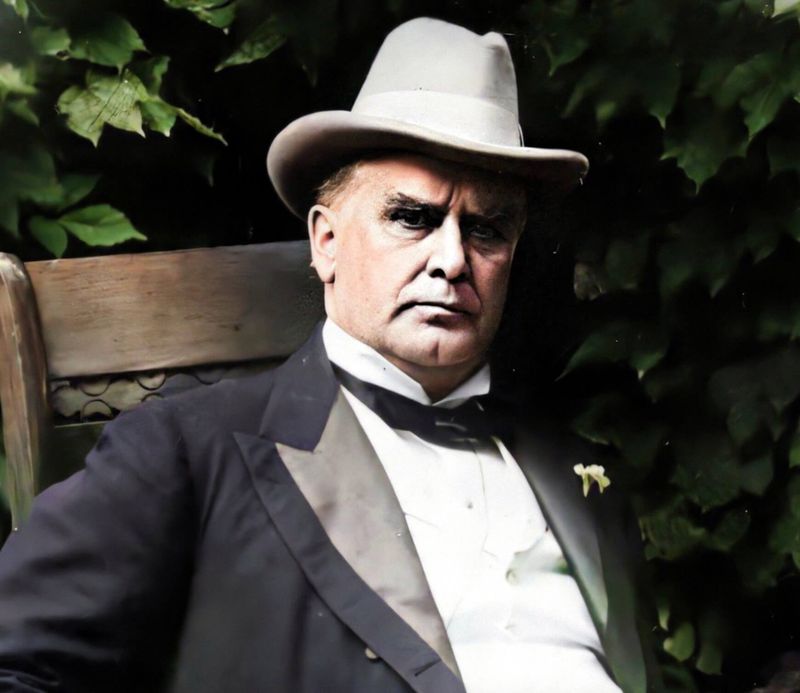
McKinley had a particular fondness for red carnations, often wearing them in his lapel. This simple bloom became his good luck charm. In an anecdote illustrating its significance, McKinley once removed the flower from his lapel to give it to a young admirer. Strangely, moments later, he was shot by an assassin. This event led to the flower being dubbed as his unlucky token. Today, the red carnation is the state flower of Ohio, a nod to McKinley’s enduring legacy. His attachment to this flower adds a touch of sentimental charm to his presidential image.
The Last Civil War Veteran President
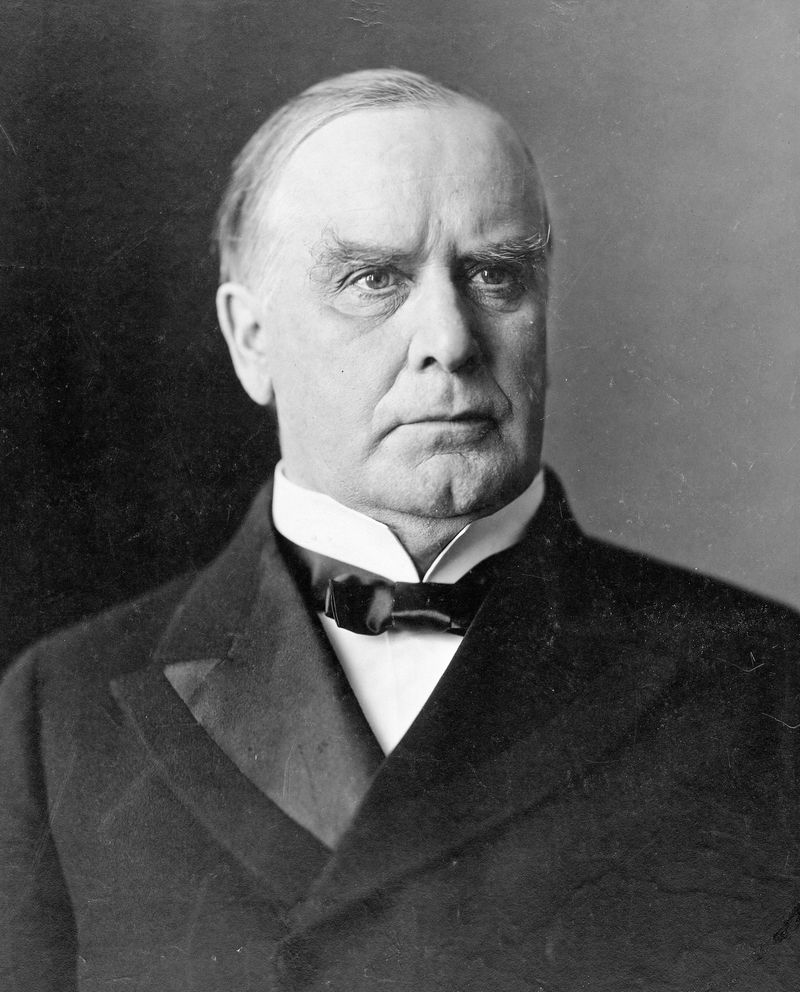
William McKinley was the last U.S. president to have served in the Civil War. Enlisting as a private in the Union Army, he displayed remarkable bravery, earning a promotion to brevet major. His military service deeply influenced his leadership style and decisions during his presidency. McKinley’s firsthand experience of war shaped his perspectives on peace and conflict. His wartime memories were vivid, often shared through poignant anecdotes. This unique aspect of his background brought a distinct, empathetic approach to his role as commander-in-chief, enhancing his reputation among veterans and military families alike.
Silent Speeches
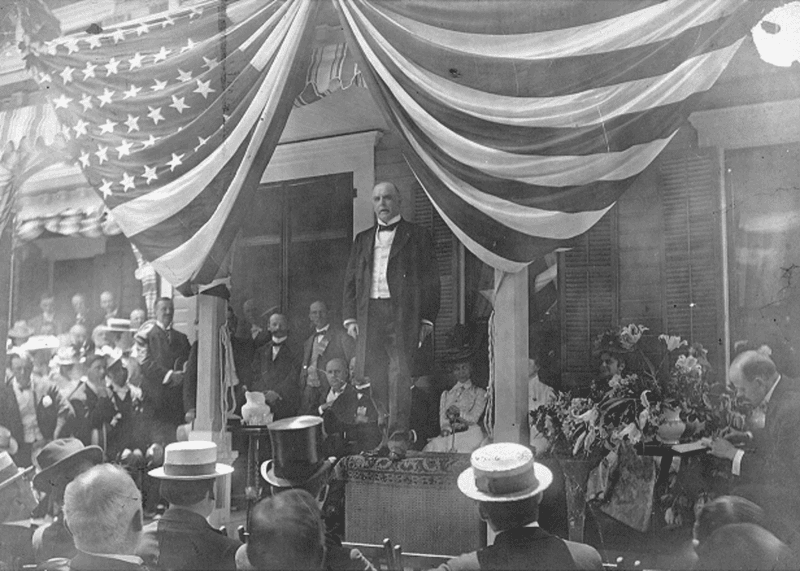
McKinley was known for his “Front Porch Campaign” during the 1896 presidential race. Instead of traveling the country, he delivered speeches from his home’s porch in Canton, Ohio. Thousands of supporters and reporters gathered to listen to his addresses. This unconventional method allowed him to reach a national audience without leaving his home. McKinley’s strategic approach not only conserved energy but also exemplified early media-savvy tactics. His speeches were meticulously crafted, focusing on key issues like economic recovery. Visitors left with a strong impression of McKinley’s calm, reassuring presence, boosting his popularity across the nation.
The White House’s First Electric Christmas Tree
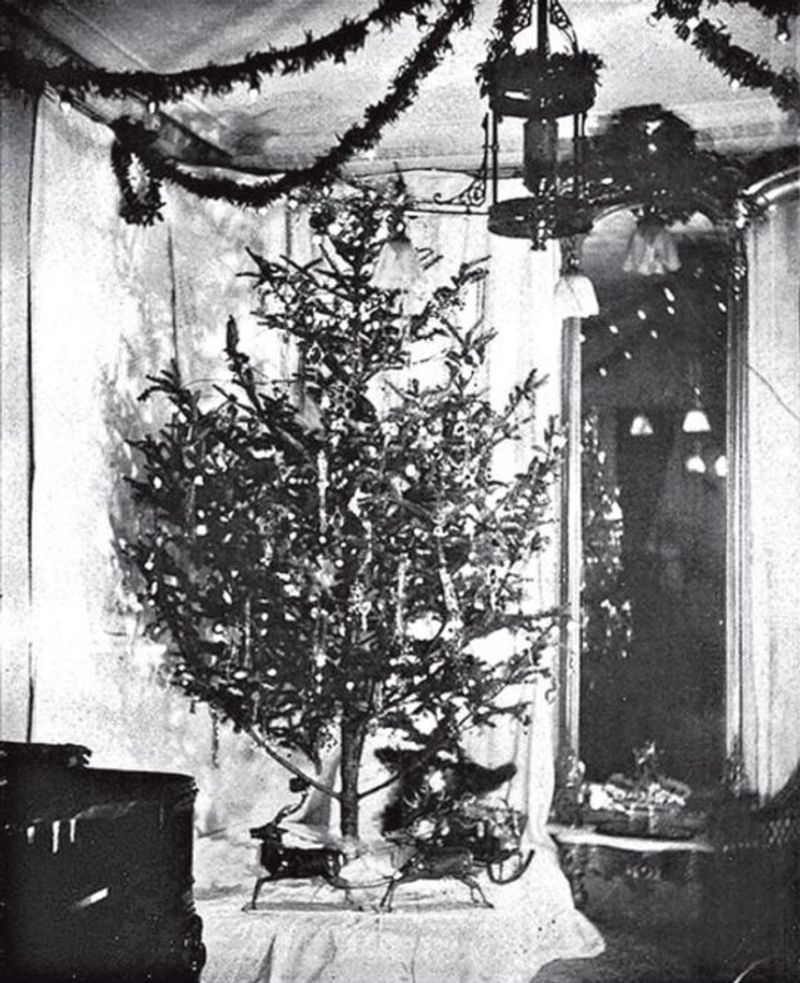
Under McKinley’s presidency, the White House enjoyed its first electric Christmas tree. This dazzling display marked a shift towards modernity and innovation. The tree, adorned with electric lights, captivated visitors and set a festive precedent for future administrations. McKinley’s inclination for embracing technology was evident in this yuletide spectacle, reflecting his progressive vision. The glow of electric lights symbolized a new era of American ingenuity and advancement. This pioneering moment in White House history contributed to McKinley’s image as a forward-thinking leader, eager to illuminate the path towards modernization for the American people.
A Love Story with Ida
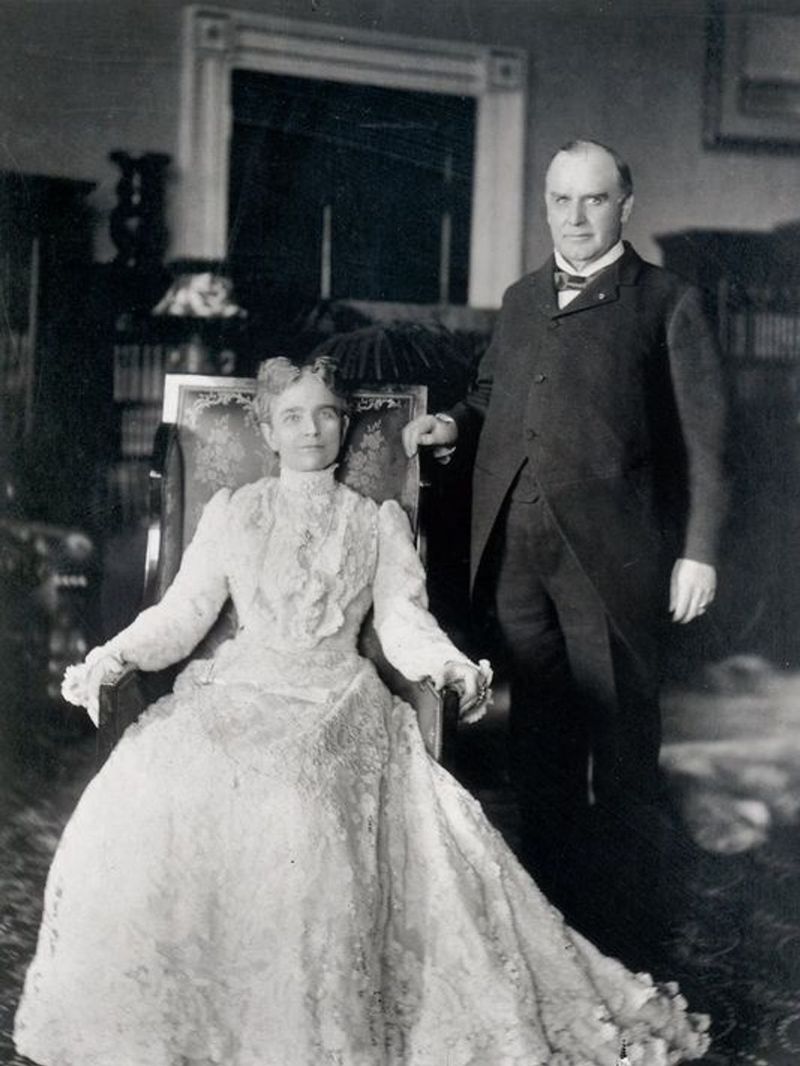
William McKinley’s relationship with his wife, Ida, was marked by deep affection and devotion. Despite Ida’s chronic health issues, McKinley remained a supportive partner. Their bond was a cornerstone of his personal life, offering both comfort and inspiration. McKinley’s attentiveness to Ida’s needs was well-known, earning admiration and respect. This enduring love story was characterized by mutual respect and shared dreams. Their partnership provided a glimpse into the softer side of McKinley, humanizing the often-stoic figure we see in history. Together, they navigated the challenges of public life with grace and resilience.
Rickety Wheelchair Rides
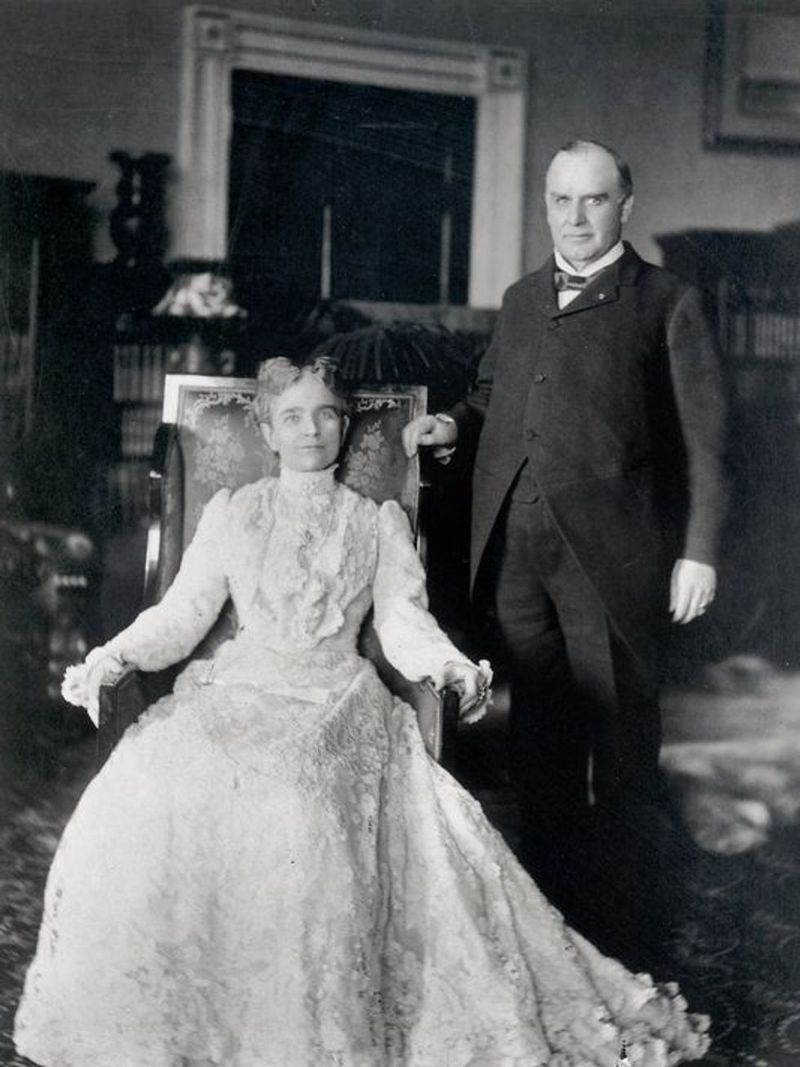
Due to Ida’s health complications, McKinley often pushed her around in a wheelchair. This act of care was a testament to his dedication as a husband. He was frequently seen escorting her through the White House and garden, symbolizing his unwavering support. The image of a president tending to a loved one offered a poignant contrast to his public persona. McKinley’s nurturing role in his marriage highlighted a personal side not always visible to the public. This compassionate aspect of his character resonated deeply with those who admired his gentle strength and fidelity.
Assassination and the Pan-American Exposition
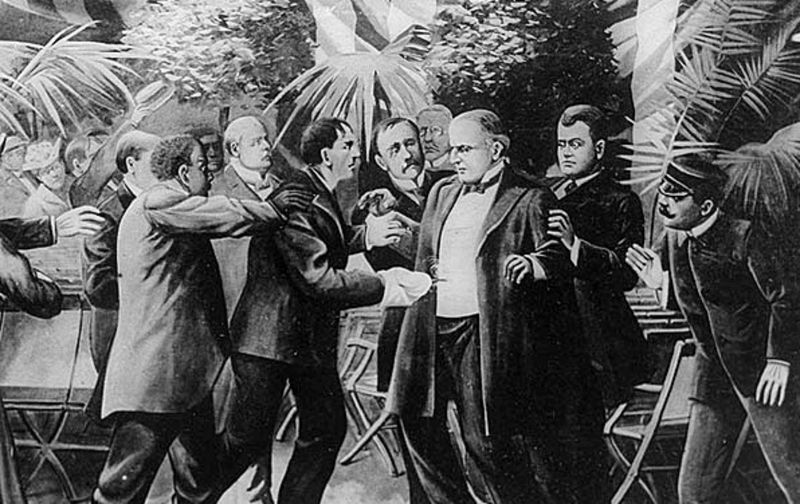
William McKinley’s assassination occurred at the Pan-American Exposition in 1901. He was shot by an anarchist while greeting the public. This tragic event shocked the nation, leading to increased security measures for future presidents. The exposition was intended to celebrate progress and peace, making the incident even more jarring. McKinley’s death marked a turning point in American history, ushering in the era of Theodore Roosevelt. The Pan-American Exposition, once a symbol of optimism, became associated with the loss of a leader. This event left an indelible mark on the American psyche, emphasizing the fragility of public life.
The Gold Standard Act
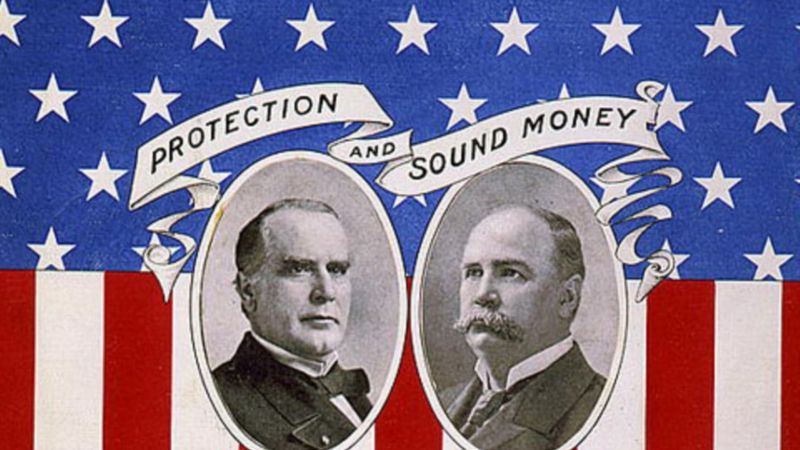
McKinley championed the Gold Standard Act of 1900, which established gold as the sole basis for redeeming paper money. This decisive move was aimed at stabilizing the economy and bolstering national confidence. It reflected McKinley’s commitment to fiscal conservatism and economic growth. By backing currency with gold, he sought to ensure monetary stability and predictability. The act was a cornerstone of his economic policy, influencing American financial practices for years. McKinley’s leadership during this period was marked by a focus on maintaining prosperity and security, solidifying his reputation as a prudent steward of the nation’s wealth.
The Spanish-American War
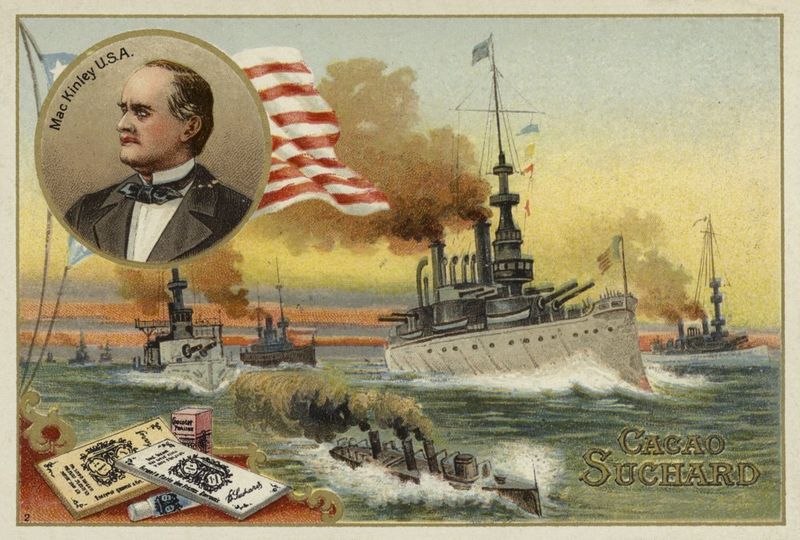
Under McKinley’s leadership, the United States engaged in the Spanish-American War in 1898. This conflict was a pivotal moment in American imperial history, leading to the acquisition of territories like Puerto Rico, Guam, and the Philippines. McKinley’s decision to go to war was driven by a desire to support Cuban independence and assert American influence. The war’s swift conclusion bolstered McKinley’s popularity, showcasing his decisive command. However, the annexation of new territories sparked debates over imperialism and America’s role on the global stage. McKinley’s war-time presidency set the tone for future foreign policy directions.
Presidential Campaign Innovations
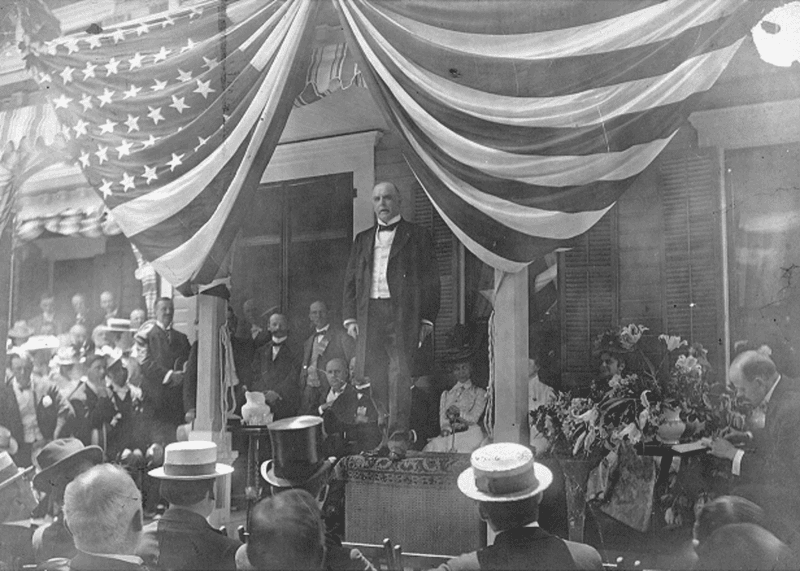
McKinley’s 1896 presidential campaign was notable for its innovative strategies. He utilized modern advertising techniques, including posters and memorabilia, to reach voters. His campaign manager, Mark Hanna, orchestrated a well-funded, nationwide campaign that emphasized McKinley’s economic policies. This approach marked a departure from traditional, low-key presidential campaigns. McKinley’s success set new standards for political campaigning, influencing future elections. His ability to effectively communicate with the public was a significant factor in his electoral victory. By embracing new methods, McKinley demonstrated adaptability and foresight, qualities that endeared him to a rapidly changing society.
The Tariff Titan
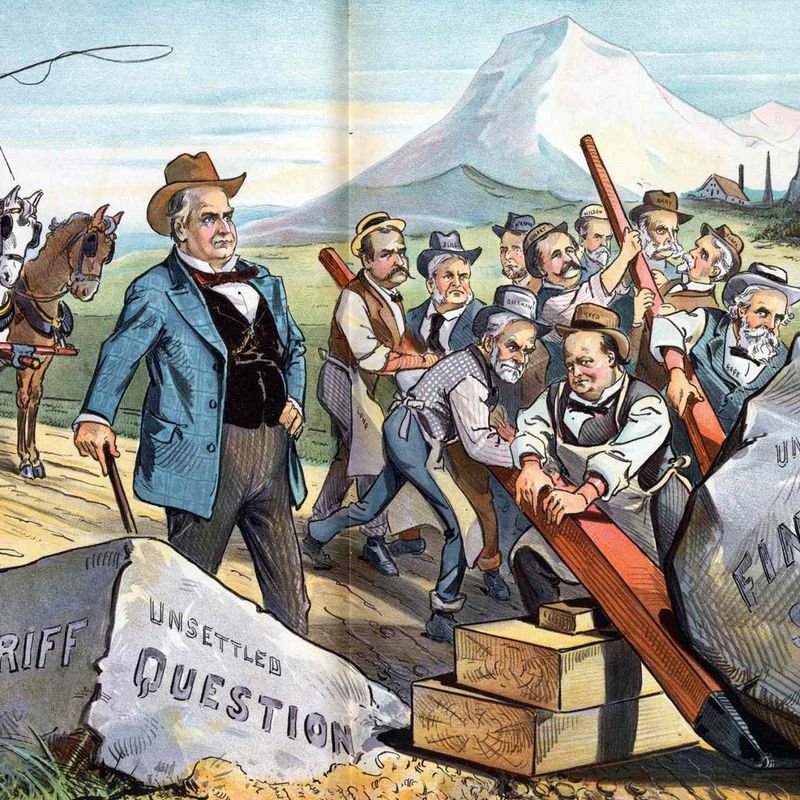
Known as the “Napoleon of Protection,” McKinley was a staunch advocate for high tariffs. His policies aimed to protect American industries and workers from foreign competition. The McKinley Tariff of 1890 significantly increased duties on imports, fostering domestic growth. Critics argued it raised consumer prices, but supporters believed it strengthened the economy. This economic approach defined McKinley’s political career, earning him both praise and criticism. His commitment to tariffs highlighted his belief in American self-sufficiency. Through these policies, McKinley sought to shield the nation’s prosperity, reflecting his dedication to safeguarding American interests in a competitive world.
McKinley’s Lamentable Losses
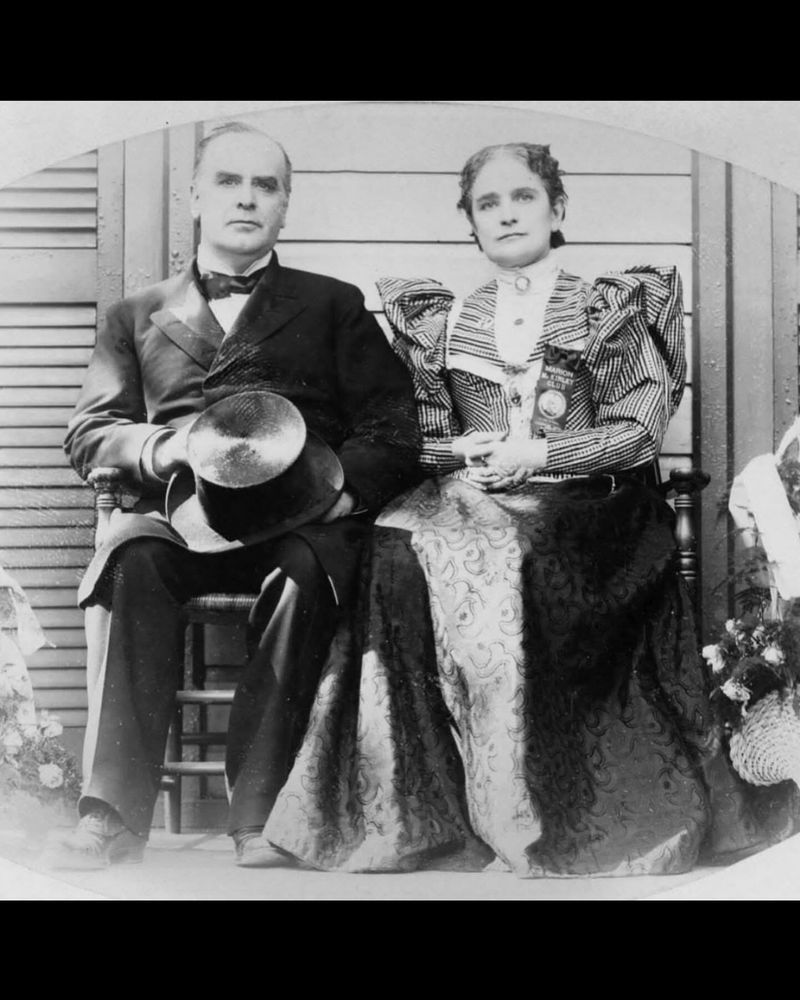
Tragedy shadowed McKinley’s personal life, as both his daughters passed away in childhood. These losses profoundly affected him and Ida, casting a shadow over their lives. The couple’s grief was a poignant aspect of McKinley’s private world, shaping his empathetic nature. Despite public duties, he carried the weight of this sorrow, which often surfaced in tender moments. These familial losses humanized McKinley, revealing resilience amid heartache. His ability to persevere through personal tragedy added depth to his character, forging a compassionate leader who understood the struggles of ordinary Americans. The McKinleys’ story is one of endurance and love.
The Gentleman’s President

McKinley was often referred to as “The Gentleman’s President” due to his courteous demeanor and refined manners. His ability to connect with people from all walks of life showcased his genuine interest in others. McKinley’s politeness and charm were hallmarks of his public interactions, earning him widespread respect. He believed in the power of diplomacy and dialogue, often using his soft-spoken approach to navigate political challenges. This genteel nature distinguished him among his contemporaries, making him a beloved figure. McKinley’s legacy as a gentlemanly leader continues to inspire those who value civility and grace in public service.
Presidential Pets: The Rooster
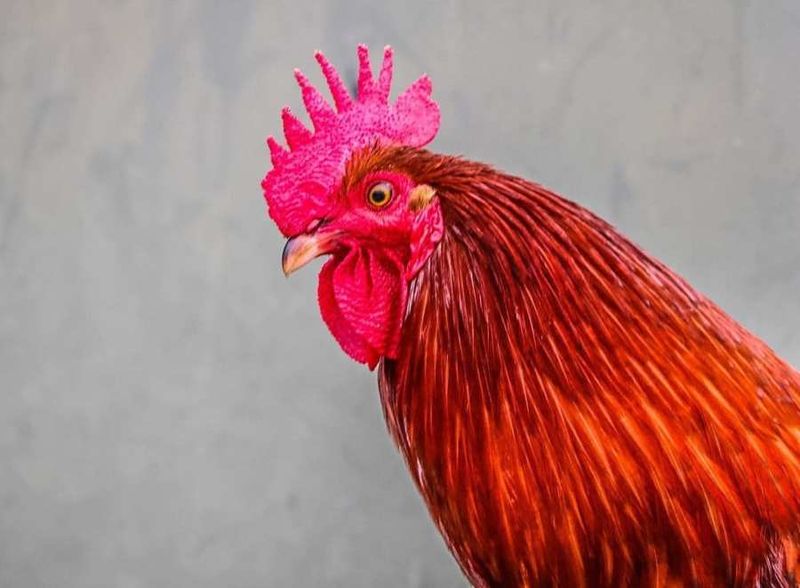
Among McKinley’s pets was a rooster that roamed the White House grounds. This feathered companion added a touch of whimsy to presidential life. The rooster’s presence reflected McKinley’s appreciation for simple, rustic pleasures. It became a minor celebrity, amusing visitors with its antics. The pet rooster symbolized the lighter side of McKinley’s presidency, offering a break from the demands of leadership. This quirky detail about McKinley’s White House years underscores his ability to find joy in everyday moments. The rooster’s story remains a charming chapter in the annals of presidential history, highlighting McKinley’s personable nature.
A President’s Final Words
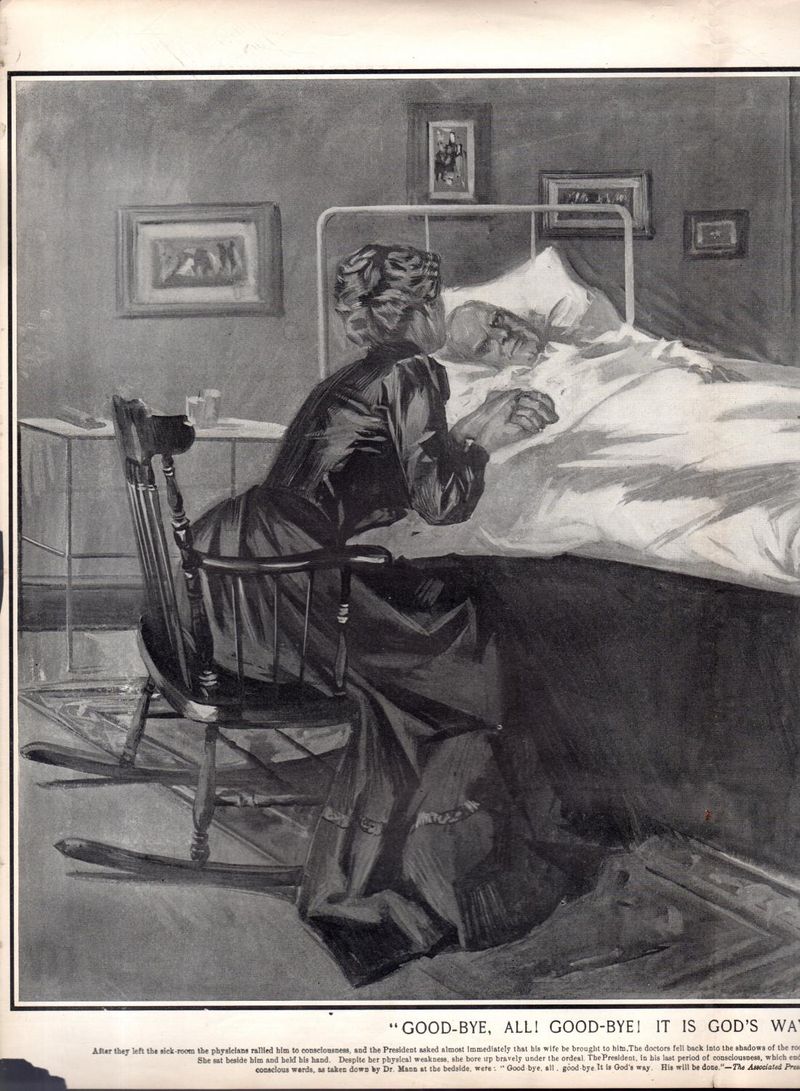
McKinley’s last words, “It is God’s way; His will be done,” were spoken after he was fatally shot. These words reflect his deep faith and acceptance in the face of mortality. As he lay dying, McKinley’s composure and spirituality left a lasting impression on those present. His calm resignation demonstrated strength and dignity, even in his final moments. McKinley’s faith was a guiding force throughout his life, shaping his character and leadership. His last words resonate as a testament to his enduring belief in a higher power, offering solace to a grieving nation and solidifying his legacy as a thoughtful, devout leader.
